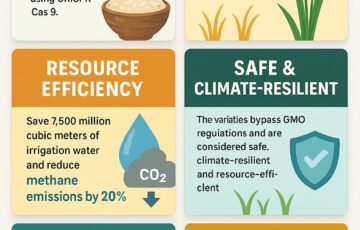Centre Drafts New Law for Property Registration
Centre Drafts New Law for Property Registration
Why in the News ?
The Ministry of Rural Development has released the draft Registration Bill, 2025, inviting public feedback. The Bill aims to replace the 117-year-old Registration Act, 1908, by promoting digital registration, transparency, and ease for citizens and businesses.
Need for a New Registration Law:
- The Registration Act, 1908, which governs registration of immovable properties and related transactions, is over a century old.
- To address outdated procedures, the government has proposed the Registration Bill, 2025, aiming to modernize the process.
- The law’s administration was transferred to the Department of Land Resources under the Ministry of Rural Development in 2006.
Key Provisions in the Draft Bill
- Introduces online registration, allowing for electronic submission, authentication, and certificates.
- Enables Aadhaar-based verification with alternate identification options for those without Aadhaar.
- Ensures digital maintenance of records and facilitates integration with other record systems.
- Emphasizes the use of plain language, transparency, and citizen-centric processes, especially benefiting individuals and small businesses.
- Balances simplification with legal certainty and procedural safeguards.
Public Consultation:
- The draft Bill is available on the Department of Land Resources’ website for public suggestions and comments.
- The government aims to make the new law more accessible, modern, and efficient, reducing bureaucratic hurdles while ensuring security and legality in property transactions.
Impact of FTAs with US, UK, EU
- Likely rise in imports of dry fruits, wines, spirits, and GM crops (soybean, maize, cotton), potentially affecting local producers and biodiversity, including areas near tiger reserves and protected areas managed under Project Tiger.
- Pressure on India to cut tariffs and relax non-tariff barriers, which could impact domestic agricultural policies and protected areas, including buffer zones of tiger reserves and areas crucial for conservation efforts.
- These FTAs could affect domestic producers and widen the trade deficit in agriculture, necessitating careful consideration of their impact on rural livelihoods and food security.
The potential impacts of these FTAs on India’s agricultural sector underscore the need for a balanced approach that considers both economic opportunities and the preservation of local farming communities. As India navigates these trade negotiations, it must also address challenges such as climate change impacts, sustainable water management, and the conservation of biodiversity hotspots that are crucial for long-term agricultural sustainability. This includes considering the potential effects on Project Tiger initiatives and the management of tiger reserves across the country, including Rajasthan tiger reserves and other important protected areas.
The government must ensure that any trade agreements do not compromise the integrity of buffer zones and protected areas, which are vital for maintaining ecological balance and supporting conservation efforts. Additionally, measures to prevent poaching and illegal wildlife trade should be strengthened in light of potential increased international trade activities. By carefully balancing economic growth with environmental protection, India can work towards sustainable development that benefits both its agricultural sector and its rich biodiversity, including the tiger populations safeguarded under Project Tiger.






